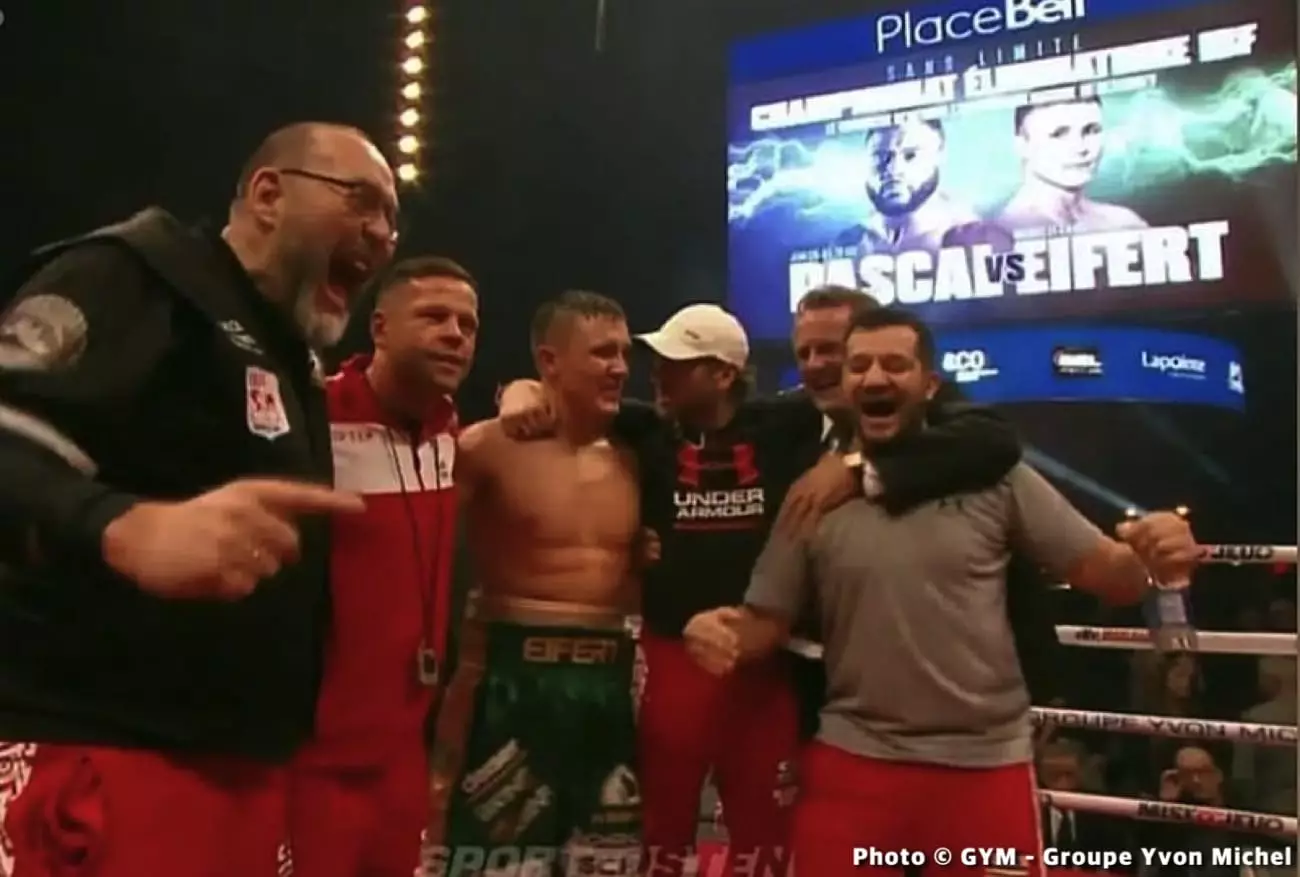Uncertainty can often cast shadows on anticipated match-ups, and the recent developments regarding Artur Beterbiev and Dmitry Bivol are a prime example. The International Boxing Federation (IBF) has mandated that Beterbiev, the reigning undisputed light heavyweight champion, must defend his titles against Michael Eifert. This decision introduces significant complications for both fighters and the fans who have been eagerly anticipating a rematch following their contentious bout on October 12 in Riyadh.
Michael Eifert’s ascension to mandatory challenger is notable; the young German boxer secured his status with a unanimous decision victory over veteran Jean Pascal. Eifert’s experiences highlight the evolving landscape of the sport, wherein emerging talents are presented opportunities that can alter the trajectory of established champions. His knockout win over Carlos Eduardo Jimenez emphasizes his potential, making him a legitimately dangerous opponent for Beterbiev.
Artur Beterbiev is not inclined to give up his titles easily. His reputation as a fierce competitor indicates that he is unlikely to vacate his belts without compelling reason, such as a move to a higher weight class—a prospect that seems improbable at this stage. The allure of a rematch with Bivol remains a notable draw, especially given the controversial nature of their previous encounter, which has left fans hungry for resolution.
The IBF’s order poses a significant headache for Team Bivol. They have filed an appeal across all major sanctioning bodies, seeking a rematch with Beterbiev based on the disputed outcome of their last fight. Although their intentions are clear and justifiable, the IBF’s firm stand on mandating a title defense suggests that navigating this bureaucratic labyrinth may not turn in their favor. They likely will not waver in their commitment to enforce the matchup between Beterbiev and Eifert.
One potential solution could be a step-aside deal, allowing Beterbiev to fulfill his mandatory obligation while keeping alive the prospects for a lucrative rematch with Bivol. Such arrangements are not uncommon in boxing but typically require both the champion and the mandatory challenger to reach a mutually beneficial agreement. Given Beterbiev’s current stature in the sport, any step-aside deal would need to be substantial in order to appease all parties involved.
From Eifert’s perspective, however, backing down may not be wise. Accepting a step-aside deal could mean passing up a prized opportunity against one of the top fighters in the division. If Eifert believes he has a chance to dethrone Beterbiev, particularly considering the mounting tension surrounding the Bivol rematch, he may very well choose to step into the ring rather than stand aside.
Fan reactions to the IBF’s decision have been vocal, with many expressing frustrations over the disruption to what could be an electrifying rematch. As the drama unfolds, it’s clear that the sport of boxing is often dictated by the actions of sanctioning bodies, fighter interests, and the marketplace of fan anticipation. Only time will tell whether this impasse can be resolved, but one fact remains: the story between Beterbiev and Bivol is far from over. The looming question is whether the boxing community will witness a thrilling sequel or if mandatory obligations will derail the narrative.
The IBF’s ruling adds layers of complexity to the light heavyweight division and raises the stakes for all involved. As this saga develops, the intersection of talent, bureaucracy, and fan enthusiasm will continue to shape the boxing landscape.


Leave a Reply